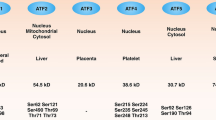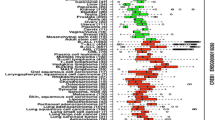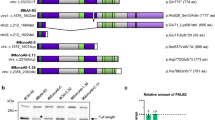Abstract.
Hypoxia-inducible factor (HIF) is a heterodimeric transcription factor that mediates the adaptive responses to hypoxia by effecting the transcription of numerous hypoxia-inducible genes. HIF is frequently overexpressed in solid tumors, and the transactivation of HIF targets in transformed cells provides a distinct survival advantage. Accordingly, the upregulation of HIF correlates with increased progression or aggressiveness of the cancer and poor prognosis. In addition to the induction of HIF by hypoxia, its expression is induced by the loss of tumor suppressors VHL, PTEN, TSC1/2, PML, and SDH, as well as by the increased activity of PI3K and/or MAPK signaling pathways, underscoring the significance of HIF in oncogenesis.
Similar content being viewed by others
Author information
Authors and Affiliations
Corresponding author
Additional information
Received 14 February 2007; accepted 26 April 2007




